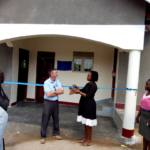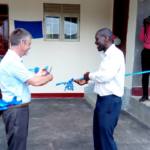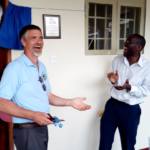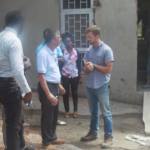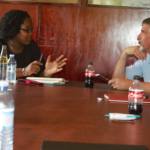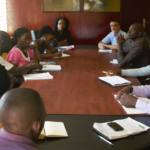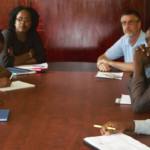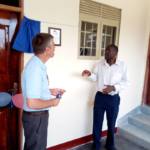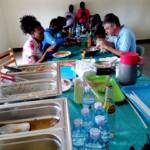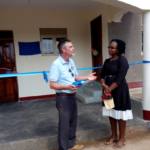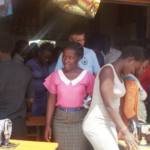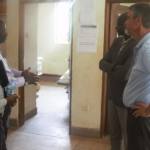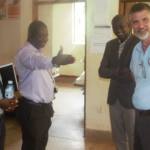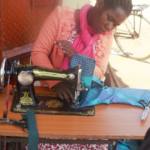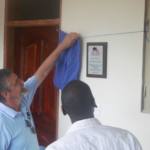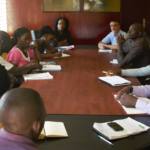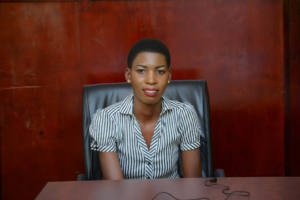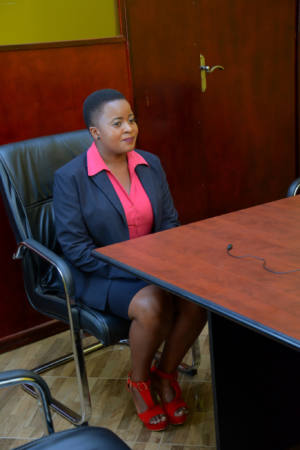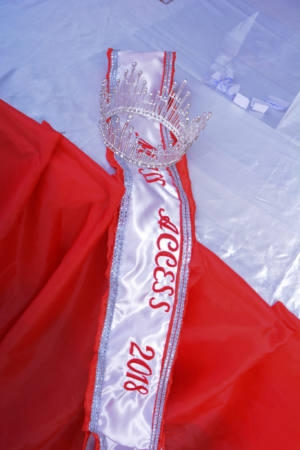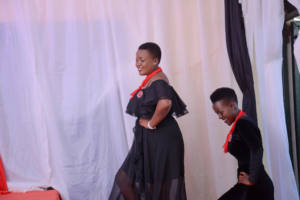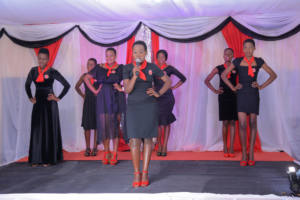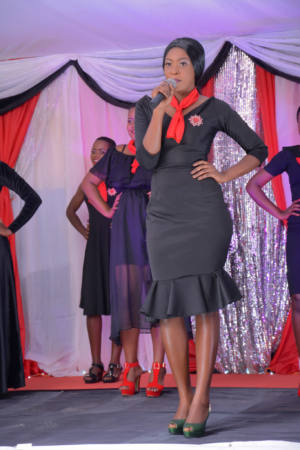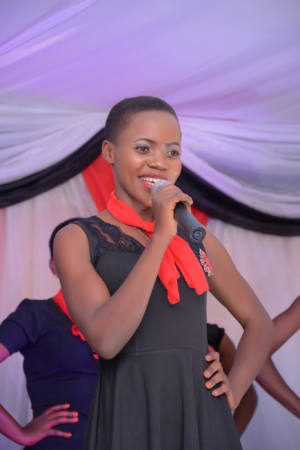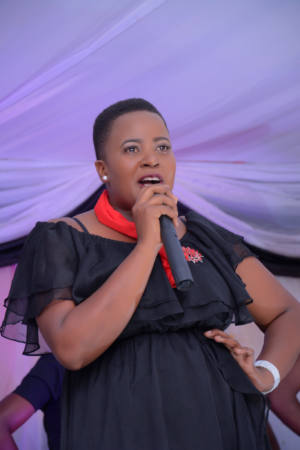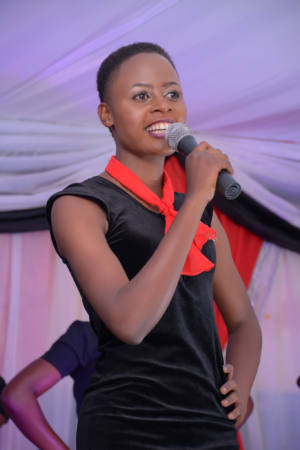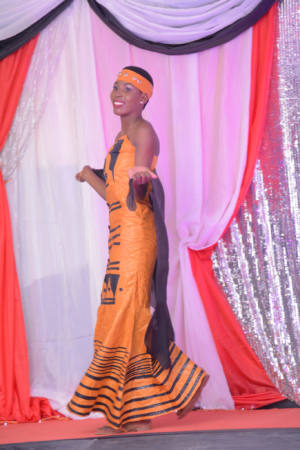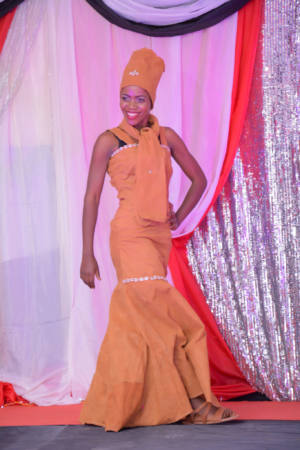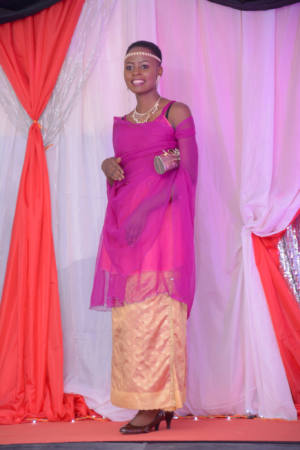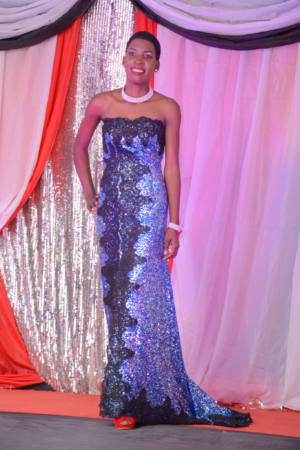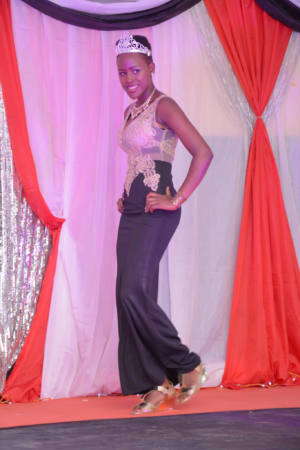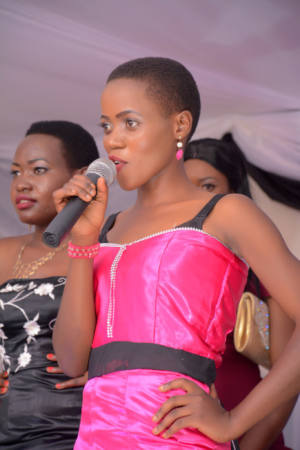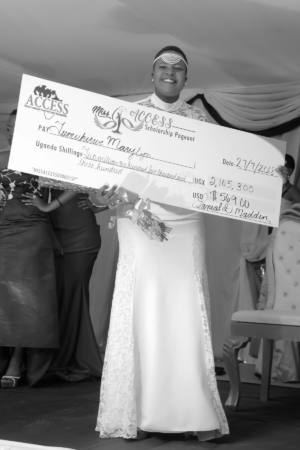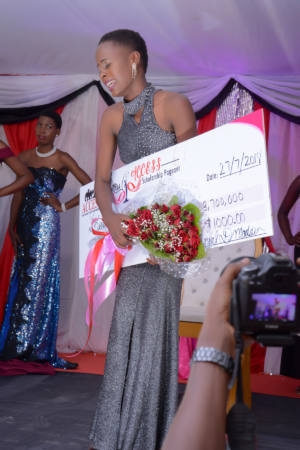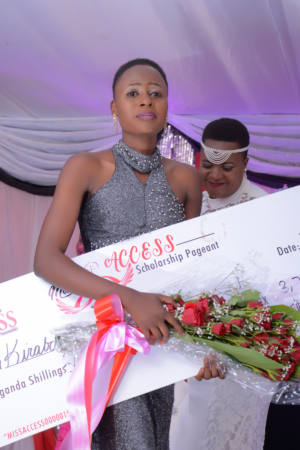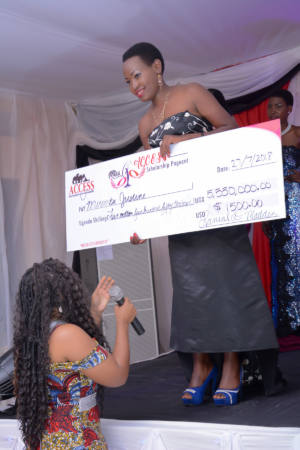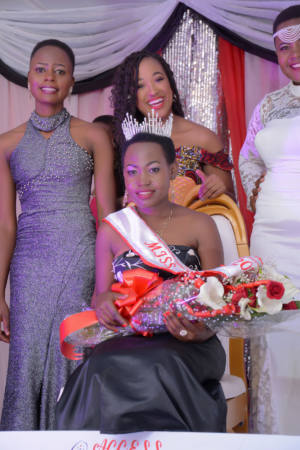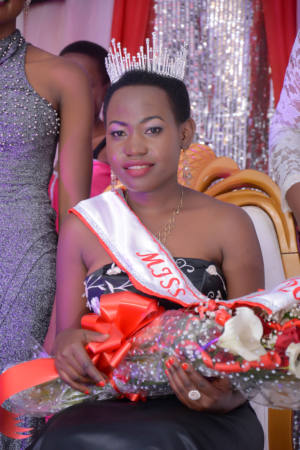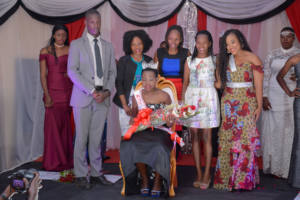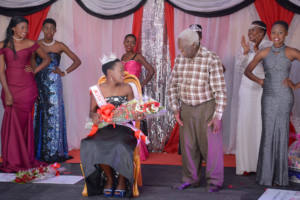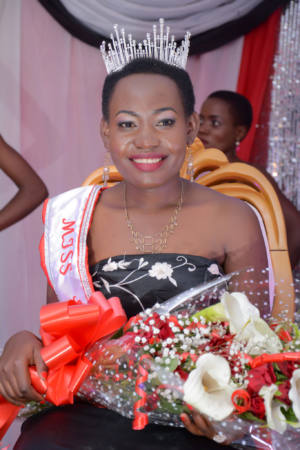CELEBRATING THE JOURNEY OF COMPASSIONATE NURSES AND MIDWIVES: A GRADUATION CEREMONY
The African Community Centre for Social Sustainability (ACCESS) is proud to announce the graduation of our dedicated nursing and midwifery students who have worked tirelessly to reach this important milestone. This graduation ceremony celebrates not only their academic achievements but also the compassion, commitment, and care they have shown throughout their training.
Our graduates represent the future of healthcare in our community. They have spent years learning the science of nursing and midwifery, but more importantly, they have developed the empathy and resilience required to make a real difference in people’s lives. Their studies have not only been about mastering medical knowledge, but also understanding the critical connection between health and the environment, community well-being, and sustainable practices.
In addition to their rigorous academic training, these nurses and midwives have been involved in initiatives that address the challenges posed by climate change. From engaging in fish farming to improve dietary practices during the climate crisis, to integrating environmentally sustainable healthcare practices into their studies, our graduates are prepared to address both the immediate and long-term health needs of their communities
This ceremony is a celebration of their achievements, and we are proud to witness how they have not only acquired the technical skills necessary for their professions but also embraced the core values of ACCESS: service, compassion, and community health. These graduates are not just nurses and midwives; they are advocates for change, prepared to enhance maternal and child health, reduce health disparities, and promote holistic care practices.
We invite you to join us in honoring their hard work, dedication, and success. Let us celebrate their accomplishments as they embark on their careers, ready to make a lasting impact in the healthcare field and beyond.
Joining the school will give great hope for the future of healthcare
SPREADING AWARENESS ABOUT TYPE 1 DIABETES (T1D) TO YOUNG PEOPLE AND TEACHERS
At Access, our mission is to spread awareness about Type 1 Diabetes (T1D) among young people and teachers. We believe that education is a powerful tool in combating this chronic condition and ensuring a healthier future for our communities.
Understanding Type 1 Diabetes:
Type 1 Diabetes is an autoimmune condition where the body’s immune system attacks insulin-producing cells in the pancreas. This leads to a lifelong dependency on insulin injections or an insulin pump to regulate blood sugar levels. Unlike Type 2 Diabetes, T1D is not related to lifestyle factors and cannot be prevented.
 The Importance of Early Education:
The Importance of Early Education:
Around 1.1 million children and adolescents worldwide are living with T1D. Early education about the symptoms and management of T1D is crucial. Recognizing signs like excessive thirst, frequent urination, unexplained weight loss, and fatigue can lead to timely diagnosis and treatment.
Our Role in the Community
As a community-based organization, we are committed to reaching out to schools, parents, and young people to spread the message of T1D awareness. By educating teachers and students, we can ensure that those affected by T1D receive the support they need.
Our initiatives include:
Workshops and Seminars : Providing comprehensive information about T1D, its symptoms, and management strategies.
Educational Materials: Distributing pamphlets, posters, and digital resources to schools and community centers.
Support Networks: Creating platforms where young people with T1D and their families can share experiences and support each other.
You can join our efforts by:
Attending our workshops and seminars.
Volunteering to spread awareness in your community.
Donating to support our educational programs.
Together, we can make a difference and ensure that everyone has access to the knowledge and resources needed to manage Type 1 Diabetes effectively. Let’s educate and empower for a healthier future!
For more information and to get involved, contact us at +256772656237
GROWING TOGETHER : PLANTING TREES OF ENVIROMENTAL AWARENESS
In our pre school, children recently took part in planting fruit trees in our schoolyard. It was a delightful sight to witness their enthusiasm as they eagerly participated in the activity. Each child was given the task of digging a small hole for their sapling, and their excitement was palpable as they carefully placed each tree into the ground.
 During this process, the children learned about the importance of trees to our environment. They discovered how trees provide us with clean air, shade, and even food, while also offering homes to various animals. This newfound knowledge sparked a sense of responsibility within the children as they pledged to take care of their newly planted trees by watering them and ensuring their protection.
During this process, the children learned about the importance of trees to our environment. They discovered how trees provide us with clean air, shade, and even food, while also offering homes to various animals. This newfound knowledge sparked a sense of responsibility within the children as they pledged to take care of their newly planted trees by watering them and ensuring their protection.
 As the trees grow alongside the children, they will serve as constant reminders of the impact of their actions on the environment. Through this hands-on experience, the children not only learned about the significance of trees but also developed a deeper connection with nature. This planting activity fostered a sense of stewardship and environmental awareness among the young minds, laying the foundation for a greener and more sustainable future.
As the trees grow alongside the children, they will serve as constant reminders of the impact of their actions on the environment. Through this hands-on experience, the children not only learned about the significance of trees but also developed a deeper connection with nature. This planting activity fostered a sense of stewardship and environmental awareness among the young minds, laying the foundation for a greener and more sustainable future.
THE T1D COMMUNITY FUND: GRANT ANNOUNCEMENT
We are thrilled to announce that our efforts to support individuals living with type 1 diabetes and their families in Nakaseke have been recognized! Thanks to the generous funding from The Type 1 Diabetes (T1D) Community Fund, powered by @PanoramaGlobal, we are empowered to further our mission and make a positive impact on the lives of those affected by type 1 diabetes in our community.
 Our organization is dedicated to:
Our organization is dedicated to:
🔹 Mobilizing the community and advocating for improved access to care.
🔹 Strengthening support systems to enhance the quality of life for individuals living with type 1 diabetes in Nakaseke.
🔹 Delivering comprehensive and accessible treatment and care for those diagnosed with type 1 diabetes.
🔹 Providing monetary and regulatory assistance to enhance the effectiveness and sustainability of the T1D program in Nakaseke.
This funding will enable us to expand our programs and initiatives, ensuring that individuals with type 1 diabetes receive the support and resources they need to thrive. Together, we can make a difference.
To learn more about The Type 1 Diabetes (T1D) Community Fund and their impactful work, visit :https://www.panoramaglobal.org/the-t1d-community-fund
NEW TERM FOR PRE-SCHOOL
 o eminently secure and inclusive, ensuring that each and every child is enveloped in an environment wherein they perceive their intrinsic worth and receive the underpinning they need to flourish. Through an artfully crafted medley of structured activities, imaginative play, and hands-on, interactive pedagogical encounters, we are ardently endeavoring to engender a passion for the act of discovery itself and to instill an enduring ardor for the pursuit of knowledge.
o eminently secure and inclusive, ensuring that each and every child is enveloped in an environment wherein they perceive their intrinsic worth and receive the underpinning they need to flourish. Through an artfully crafted medley of structured activities, imaginative play, and hands-on, interactive pedagogical encounters, we are ardently endeavoring to engender a passion for the act of discovery itself and to instill an enduring ardor for the pursuit of knowledge.OVCs RECEIVING SCHOLASTIC MATERIALS

 We have organized various activities and workshops to engage with them, offer guidance, and instill a sense of belonging. Through mentorship programs and interactive sessions, we hope to inspire them, ignite their curiosity, and encourage them to dream big.None of this would be possible without the incredible support and generosity of our donors, volunteers, and community members.
We have organized various activities and workshops to engage with them, offer guidance, and instill a sense of belonging. Through mentorship programs and interactive sessions, we hope to inspire them, ignite their curiosity, and encourage them to dream big.None of this would be possible without the incredible support and generosity of our donors, volunteers, and community members.A SEMESTER OF EXCELLENCE AHEAD
MANNEQUINS AND BLOOD PRESSURE MACHINES DONATED BY PROF. ALLY PREBTANI AND McMASTER TEAM
We are thrilled to announce a groundbreaking initiative that will redefine the training experience at our esteemed Nursing School. Thanks to the incredible generosity of Professor Ally Prebtani and the esteemed McMaster team, we have received a remarkable contribution of cutting-edge mannequins and blood pressure machines. These state-of-the-art resources are set to revolutionize the way our students gain hands-on experience, enabling them to excel in their studies and become truly exceptional healthcare professionals.
 At our Nursing School, we are genuinely grateful to Professor Ally Prebtani and the esteemed McMaster team for their unparalleled kindness and unwavering commitment to fostering excellence in nursing education. Their profound act of giving will undoubtedly shape the future of healthcare, producing a generation of skilled nurses who will make a lasting impact on patients’ lives.
At our Nursing School, we are genuinely grateful to Professor Ally Prebtani and the esteemed McMaster team for their unparalleled kindness and unwavering commitment to fostering excellence in nursing education. Their profound act of giving will undoubtedly shape the future of healthcare, producing a generation of skilled nurses who will make a lasting impact on patients’ lives.
As we gear up to embark on this exciting new chapter, we extend our heartfelt appreciation to all those who have made this donation possible. We invite you to join us in celebrating this milestone achievement, as we continue to elevate the standards of nursing education and set a new precedent for excellence.
Together, with boundless passion and rema rkable resources, we can shape a brighter future for healthcare.
rkable resources, we can shape a brighter future for healthcare.
ACCESS-DREAM GIRLS CAPACITY BUILDING

2022 ACCESS ANNUAL REPORT
Hello Partners,
It is such a great joy to be part of ACCESS and a vast group of individuals that have dedicated themselves to ensure that rural communities of Africa, like Nakaseke continue to have standard health services, access to quality education and economic empowerment. In our 20th year of existence, we have a lot to celebrate having reached a milestone of having directly touched the lives of over 77,500 individuals through our services. Initially working under a tree, we now have a well-furnished clinic with laboratory services able to care for both outpatient and inpatient clients. We have trained over 300 community health workers who are the backbone of our service delivery. Through their dedication and enthusiasm, we are able to always have our feet and ears on the ground adapting steadily to the needs of the community. We have established a preschool and are operating a full-fledged nursing school employing close to 68 individuals fulltime and supporting 120 community health workers. One of our key projects addressing non-communicable disease has been evaluated and taken on as a model by the Uganda Ministry of Health to ensure that many more people are prevented from getting Noncommunicable Diseases (NCDs) while those who are diagnosed are treated in a timely manner.
We have partnered with local and international collaborators to ensure that we continuously evaluate, learn and adapt our interventions to match the current needs of the population we serve. This was highly advantageous when we were hit by the COVID-19 epidemic as well as the ongoing after effects of the Russia-Ukraine war — both of which have seen massive exit of support from our vulnerable communities. This year our model was featured at the United Nations Annual General Assembly (UNGAS) which was such a great milestone. We are very optimistic and ready to give our best to our third decade and we hope to walk this journey with a group of committed individuals that are able to work with us to reach the most remotely placed child with the minimum resources that they need to have their lives transformed. Thank you for your great contribution to humanity. Enjoy reading our annual report.

Robert Kalyesubula, MD, PhD
President, ACCESS Uganda.
DOWNLOAD THE FULL REPORT HERE
DR. ROBERT KALYESUBULA LISTED AMONG THE TOP 15 MEDICAL SPECIALISTS IN UGANDA
Public Opinions: Unveiling the Best 15 Doctors and medical specialists in Uganda
Global News, Facts, Opinions and Events
Public Opinions: Unveiling the Best 15 Doctors and medical specialists in Uganda
By Public Opinions | Web: www.publicopinions.net | Tel: +256701992426
Uganda commonly known as the Pearl of Africa is blessed with people of different professions but today we bring you a list of the best 15 Medical Specialists in Uganda who have invested their lives, knowledge and resources to offer the best medical services to the people of Uganda. The best 15 Doctors and medical specialists were nominated by the people of Uganda through a survey conducted by Public Opinions on over 1000 WhatsApp groups and in communities. Here is the list:
MEET JOVIA
Nakiyana Jovia was born in Nakaseke district 21 years ago to the late Mr. and Mrs. Katongole. Her father was a plumber by profession and a businessman as well as a livestock farmer. Jovia and her three siblings went to good schools as the financial situation at home was generally good. However, in 2015, when Jovia was just 14 years old, her father passed away. The family was left in the care of their big brother, who was also a livestock farmer and a businessman. He took care of the whole family, including their mother. Unfortunately, Jovia’s mother also later passed away in 2019 leaving her a total orphan at the age of 18 years. With the support of her brother, she joined ACCESS School of Nursing and Midwifery in July 2019, in order to pursue her dream of becoming a midwife. She is currently pursuing a course in Midwifery and is in Year III, Semester I. Jovia enjoys all her lectures but most of all the practicum at Nakaseke Hospital and Life Care Clinic. “It makes me feel like a real midwife already!” she says.

Nakiyana Jovia happily poses for a photo.
She, however, narrated a time towards the end of last year (2021), when she lost her benefactor (big brother) and worried about who would pay her tuition. She was so miserable and wondered whether she would complete her course and become somebody in life. God however answered her prayers and she qualified for a scholarship from the ACCESS- EKFS – Balamu project who are now paying her tuition along with two other students. She thanks the ACCESS-EKFS – Balamu team for having made it possible for her to achieve her dream.
She is very happy for having been given this scholarship and says that after her graduation, she will volunteer at the ACCESS Life Care Clinic as a midwife as a way of showing her gratitude to the organization.
Global Health Leadership
Global Health Leadership

The Global Health Program at NH/UVMLCOM is defined by an unwavering commitment to bidirectional, mutually dependent partners like ACCESS. The program supports students and faculty through capacity building, site development, educational scholarships, and long-term mentorship.
ACCESS COMMUNITY ECONOMIC EMPOWERMENT PROGRAM
ACCESS perspective to Community Development
At ACCESS we define development as a step-by-step movement, progressive in nature, from one state of being to a new acceptable state of being ranked by known standards of society that influences one’s life and society perspective to the so many ways they do their things.
It should be noted that development steps are influenced by a change force which is usually accepted or rejected by the community depending on the community penetration style one engages.
Change by nature is a new state to both individuals and societal systems and therefore faces a lot of bottlenecks despite its positive intentions sometimes. Change can also be classified into two folds, that is change that is forceful and change that is mindful, and the first one imposes itself without allowance to evaluation by many and through its adoption, the testing experience becomes a learning point. The latter is very cognizant of the fact that society and individuals already have what they believe in therefore, it comes in slow to allow easy adoption and free acceptance by the majority.
At ACCESS, coming to 20 years now, we have adopted and implemented a mindful change model that can easily accommodate the rigid nature of our African culture and customs, which strongly delays change plans sometimes, however, we have gone slow and sure on community penetration and buy-in for all our organization program activities in Health, Education and Economic Empowerment.
ACCESS since its inception adopted a community Health Work Model (CHW), which puts a Community Health Worker at the pivot of all community engagements, right from community penetration of organization initiatives into the community and thereafter leading the community buy-in to organizational change plans.
It has been our focus for a long time now to influence/ cause change that is owned by the entire community because this way everyone within the community, young or old will have played a part to change which is sustainable in nature.
Change within the community in which we work has not come in so easy, but we can use the observations from the last nineteen years to tell an economic empowerment story within Nakaseke District in Uganda Africa.
By the nature of things in this region following the 1986 war that brought in the current regime in power in Uganda, the Nakaseke region lost many young men and children who were breadwinners in many polygamous families leaving behind a vast number of Orphans and Widows, this escalated the dependence burden and also explains the composition of the majority of the Ugandan population today, which is dominated by mainly the youth.
The organization has struggled to bring in hope and sustainability measures to life, encouragement and need to live amongst the people of Nakaseke, by introducing initiatives to learn the art of income generation for family and community social wellbeing,
We started small, by introducing to families with children supported by the organization through the Orphans and Vulnerable children program, income generation interventions like raring animals, and planting gardens from which they could harvest food for both home consumption and sale to be able to acquire items the children continuously needed.
We ventured into interest-free loaning of about $200 first as a pilot to ten (10) women participants within in the community with struggling small businesses, with the goal to increase their income base, grow and maintain their business, play an exemplary role among other women in the community to admire, accept and adopt the income generation ideology message that was presented by the Community Health Workers as an Economic empowerment strategy in the community.
The Ten Participants were to return the capital invested within eight months, however despite the numerous structured monitoring and evaluation interventions deployed, only 35% of the participants in this interest-free loan model have been able to return some of the money, and only one person has paid up fully.
Learning from this experience, it was noted that extending practical knowledge on how to manage and sustain businesses was more important than the size of capital to invest in a particular business because we discovered that many participants did not return back the loaned money, because they used to eat directly from the business proceeds, without a clear clue that they were eating up the entire capital
From that experience, we partnered with WWK and initiated another interest-free loan model which targeted about fifty to one hundred and fifty women from different sub-counties within Nakaseke District to receive a small interest-free loan of about $10. In this model, the emphasis was put on humble beginnings with relevant practical business knowledge, for the participants to learn business management through a cycle of business journeys from initiation with small capital investment to business growth when the business capital has grown.
Tremendously, over a period of three years from 2019 to date, we have registered gradual but very successful stories, which has taught us a lesson that, to start, run and maintain a business one needs to practically learn from the gradual business growth such that by the time the business capital grows the business owner has mastered the skill of sustainability, and that continuous practical business education is a requirement to rural people to re-echo business management principles from time to time.
 Our dedicated team during a loan collections meeting.
Our dedicated team during a loan collections meeting.
We strongly believe that empowering many local women to work and sustain family businesses, will increase the community’s economic performance, and these families will be able to adopt good health-seeking behavior because they will be able to afford to pay for basic medical bills, and at least support their children through basic public education

Ms. Rose in her poultry project.
The bigger vision, is to teach the local women how to maintain sustainable income generation through Village saving groups that they will use to re-invest into their business in order to work with bigger capital after acquiring practical business skills, and have walked through the various business growth cycles and challenges and learned how to bend them.
The organization plans to set up cooperatives for the teams according to the IGA industries that will provide easy markets for the products and produces from the local business, for the local business owners to have a collective business voice to be able to negotiate for better and more competitive prices for their products and produces.
ACCESS ECONOMIC EMPOWERMENT CONCEPT
BRIEF BACKGROUND
African Community Center for Social Sustainability (ACCESS) is a community-based organization in Nakaseke, Uganda founded on the belief that everyone has a right to a healthy life. The micro-nano project was initiated in January 2019 by ACCESS in collaboration with With Women Kisoboka (WWK) with an aim of empowering women by skilling them financially so that they transform their families and the entire community. The project started with 50 women only but the number has grown to around 150 to date.
MISSION:
To work with vulnerable people in resource-limited settings through provision of medical care, education, and economic empowerment to create long-lasting change that is owned by the entire community.
INTRODUCTION:
African Community Centre for Social Sustainability (ACCESS) contributes to community development through education, medical care, and economic empowerment.
The focus of this communication is to highlight one of the key economic empowerment activities undertaken under the leadership of MsEstherloyKatali, the Executive Director of ACCESS Uganda.
The Micro-nano project.
Since its inception. ACCESS has been looking for innovative ways to empower vulnerable members of Nakaseke and beyond out of poverty. Through our work, we have come to note that the drivers of poverty in our community include lack of access to cash, poor access to markets, lack of financial literacy as well as low levels of mentorship. Many of our beneficiaries were working hand to mouth and had very low levels of saving culture. In a survey, we conducted of over 300 households only 30 homes (10%) had a bank account. Of those with a bank account, the majority 20 (66%) were in- formal employment and the majority of these were male. Women had very little involvement in income-generating activities. Based on these daunting findings we partnered With Women Kisoboka an indigenous organization to empower women. The Micro-nano project is an economic empowerment initiative that seeks to address the community poverty gap and the need to advance the social standards of living within the community to the acceptable social well-being standard levels globally. In a bid to address the huge poverty problem in Nakaseke District and Luwero Triangle in Uganda, Africa, ACCESS strongly believes in having the entire community involved in the community development programs such that developmental initiatives are easily embraced and adopted. ACCESS strongly believes that education and good health are supporting factors for community development.
OBJECTIVES:
Main objective
To address the community poverty gap and need to advance the social standards of living within the community to the acceptable social well-being standard levels globally.
Sub – Objectives
- To eradicate poverty in the community.
- To stop disease spread within the community.
- To create a sustainable life for people in the community.
- To create sustainable change that is owned by the entire community.
ECONOMIC EMPOWERMENT IMPLEMENTATION PLAN
Our key partners in all our programs at ACCESS are the Community Health Workers (CHWs) or the Village Health Teams (VHTs). A CHW/VHT member is a well-respected personality with adaptable and acceptable levels to change, resident in the community with permanent status. The hardest task with community engagements is community penetration and buy-in, that is why it is very important to have respectable people in the community to first adopt and accept the community development implementation plan such that the extension, maintenance, and monitoring of these plans in the community is done by these very key people.
Our key innovation is giving out interest-free loans to women after empowering them with a comprehensive yet simplified module on pillars of financial growth and development. This module involves community sensitization about the pros and cons of having a sustainable source of income. Following this sensitization, marginalized but willing women are identified through interaction with the local leaders, community health workers, and Women representatives. They must also be citizens of Uganda and residents of Nakaseke district for at least five (5) years and above.
They undergo a full week of training in financial literacy i.e. how to manage and grow their businesses, bookkeeping, and being innovative by creating more income-generating activities.
 WWK women beneficiaries during one of their financial training.
WWK women beneficiaries during one of their financial training.
Following the training, we offer two (2) categories of interest-free loans to the community women to support their struggling businesses or to start new small businesses, with emphasis put on homestead development measured based on Poverty Probability Index (PPI) Indicators. This has a set of questions that are answered by the women (participants) yearly to assess whether they have achieved some form of development. Different scores are attached to the questions, after this, conclusions are made on whether there has been some impact of the loan given to the women or not. Once the interest-free loans are disbursed, women are followed up and supported to ensure that they use the loan diligently. Once the loan is paid back, ACCESS doubles it and reinforces the saving/investment culture. This cycle of increased amounts loaned out is repeated until the woman attains full capacity to save and invest her funds in the free market.

Ms. Aidah in her piggery project
The organization also has initiated the establishment of Village Saving Schemes for the women with an aim of creating a continuous flow of income for their businesses. We currently have about five village saving groups that don’t exceed 30 members. Women contribute between two thousand shillings UGX.2000 to five thousand shillings UGX. 5000 weekly and once enough money has been collected, it is loaned to the members at a small interest of 5%. This is returned on a weekly basis according to the amount one was given as a loan.

Ms. Margaret demonstrates how to cut a book.
CATEGORY ONE INTEREST-FREE LOANS
The first category of Interest-free loans was given to only ten (10) participants with already running businesses to a magnitude of $200 (Two hundred dollars) with a return limit of 8 (eight) months as a pilot for interest-free loaning community development initiatives. The organization’s motive was to boost the struggling small businesses of community members with work enthusiasm. The plan was to monitor and evaluate their performance for 8 (eight) months to ensure that the organization’s injection is measured on household performance using the Poverty Probability Index (PPI) indicators and then recruit another team of 10(ten) and take them through the same process. The ultimate goal was to ensure that these households measure up to sustainable development reflected by the Poverty Probability Index (PPI) indicator measure.
Lessons learned from CATEGORY ONE INTEREST-FREE LOANS
Unfortunately, this model was discontinued due to the following;
- Failure of the participants to return the loan during the projected period of time.
- Only 35% of the participants had contributed to half of the loan payment by the end of 2019, the year in which the project was initiated.
- The participants’ households measured so low against the Poverty Probability Index (PPI) indicator measure.
- The interest-free loan model requires full engagement of the participant and commitment to the program which lacked because of the reduced pressure to pay back.
CATEGORY TWO INTEREST-FREE LOANS- the micro nano finance project
ACCESS re-strategized based on the learning experience from category one interest-free loans in big quantities (sums) given to the community. In collaboration with (WWK), the organization extended practical business training rich enough to inspire participants to start their own businesses or maintain their struggling small businesses. We put emphasis on the knowledge to run and sustain businesses other than big capital to start and run businesses. Our target was to enroll about 50 – 150 women into the program and extend to them small amounts of interest-free loans to a tune of 10 dollars ($10). The funds would help them to start up or inject into their struggling small businesses with a motivation to use the proceeds to support their households in the areas in which they see the need. The women are expected to have a monthly contribution as a return on the total interest-free loan acquired determined by themselves according to their monthly business proceeds and the wellbeing of the family they support. At any given time, a participant honors the full payment of the interest-free loan awarded; the participant is evaluated against the Poverty Probability Index (PPI) measure to establish if there is some level of improvement in the households’ wellbeing from the time of the last evaluation when a participant was awarded a sum which they have fully returned. In the event that a slight improvement is established; the participant is awarded double or triple of the first or second loan amount awarded initially.
Lessons learned from CATEGORY TWO INTEREST-FREE LOANS (Micro-nano project)
- In a period of three and a half years, it has been observed that the greatest motivation to work is built-in someone’s inner motive and once it’s awakened, a person can perform beyond expectations.
- We have also observed that a vast number of people require constant monitoring and supervision in other wards being under the leadership of others to be able to work as expected.
- We established that willingness to work isn’t dependent on the amount of money one injects into a business as capital rather the skill and knowledge on how to manage the business one has started.
- We further observed that women are more patient with small beginnings and adapt easily to new challenges.
- We have appreciated that humble beginnings, with little capital, are very important in the growth of a business because people learn how to survive through business challenges when the capital is still small and also work through alternatives to ensure that the business grows against all odds.
ECONOMIC EMPOWERMENT DEVELOPMENT FUTURE PLANS
- ACCESS plans to increase the participation base number by increasing participation from different regions/sub-counties/villages within Nakaseke district.
- To empower them with good practical business orientation and skilling.
- To group the women in mentorship teams and provide leaders for the teams.
- To introduce Village Saving Schemes according to teams created above with full leadership.
- To ensure a recurrent and sustainable income generation amongst members.
- To empower these teams to start investing using their savings aided by the additional small interest-free loans given based on the profound conditions aligned to household and community development.
- To include the group’s performance in government development projects in order to seek additional support from the government.
- To contribute towards informing policy in the government economic sector using the progressive evaluation reports on community development.
Click to Support one vulnerable woman to start or boost a business with $10
2020 Annual Report
LETTER FROM THE DIRECTORS
The triumph of success in the year 2020
Dear Friends,
We would like to appreciate you for your unwavering support to ACCESS. What began as a rumor of a few deaths in China, soon came to haunt us like a nightmare for the whole world. We were ill-prepared! Due to uncertainties around COVID-19, the initial predictions were that Africa would be annihilated by the pandemic because of the poor health infrastructure. As such, there was a lot of fear, and many reflex decisions were taken. There never was a time in history where every country had such uncertainty and autonomy to justify their decisions. Without evidence and with little guidance from the international bodies, we were left to our own devices. When the giants were stuck, fear intensified within our communities engulfing the little hope that we have always held.
The fear of losing financial support from the believers of ACCESS’ mission due to constraining global economic changes due to the COVID 19 pandemic was palpable. Everyone was vulnerable and feared for their loved ones and the closer communities in which they lived. Indeed, we lost a few of our sponsors but we also got some new ones.
In spite of all the challenges, we are very grateful to our sponsors, our staff, the leadership of the Nakaseke district, and governing council for keeping us relevant in these tumorous times.
As it is often said, “where there is will there is a way” ACCESS together with our partners managed to keep the programs running. As you will be reading in this report. We engaged the community through sound leadership and found amicable ways to reach out to the last mile where the most vulnerable families are found. We made sure that we reached out to the children who were out of school for close to a year. We supported women whose businesses had closed down and established online training programs to keep our Nursing School students learning. These and many other changes made it possible for us to achieve most of the planned activities for the year 2020.
We thank you all for your contribution.



Dr. Robert Kalyesubula Katali EstherLoy Mr. Sewanyana James
ACCESS President Managing Director Community & District Engagement Director
DOWNLOAD FULL REPORT HERE
Dr. Robert Kalyesubula Awarded for Outstanding Community Work in Nakaseke
VOCATIONAL SERVICE AWARD
Awarded by Rotary Club of Kampala Ssese Island.

Rotary Club of Kampala Ssese Islands recognized and appreciated Dr. Robert Kalyesubula and awarded him with a Vocational Award for his support for the Nakaseke community through African Community Center for Social Sustainability (ACCESS).
Each year, ACCESS supports 60 girls in the DREAMS program to access vocational training in hairdressing and tailoring. To date, a total of 180 girls have gained these marketable skills and are currently self-employed or employed within the community. ACCESS also supports 500 OVCs, 50 elderly women and men, 180 nursing and midwifery students, and 61 preschool children. It has supported 150 women to start-up income-generating projects.
Amidst the lockdown, the ACCESS lifecare center did not close down a single day and it was able to provide services to 4,142 community patients. It conducted 3,154 laboratory tests for people in the community and 2,511 immunization visits for children under five years. ACCESS has trained 120 community health workers using WHO and community Health Impact Coalition (CHIC) guidelines. Through these community health workers, ACCESS was able to extend services to people in hard to reach areas. In 2020, ACCESS provided at least 60,574 family planning services through community outreaches, partner health facilities, and community health workers (CHWs).
During the 2020 COVID 19 devastating period, ACCESS managed to distribute 84 radio sets and distributed 2,196 education materials to the homes with orphans and other vulnerable children. It was able to set up a food rescue program to support the children and vulnerable women whose families were struggling.
We appreciate the Rotary Club of Kampala Ssese Islands for recognizing the work that the African Community Center for Social Sustainability (ACCESS) does in the Nakaseke community.
AFRICAN COMMUNITY CENTER FOR SOCIAL SUSTAINABILITY (ACCESS) IMPACT AND RESPONSE TO COVID-19
Every year, ACCESS focuses its attention on improving the activities in the areas of support for orphans and other vulnerable children (OVCs), medical care, education, Nursing and Midwifery training, family planning provision, Innovative and, Implementation research, global health exchanges, and human resource development.
ACCESS comprises of seven (7) department whose mandate is to work within the organization strategies to enable the organization achieve its mission and vision, the organization’s departments include; (i) Community department with the project such as Dreamgirl project, Preschool project, Elderly (Jajja) project, Nano finance project, water project, and Lighting project, (ii) International coordination and engagements, (iii) ACCESS data Management (iv) Finance department, (v) ACCESS Lifecare Clinic this includes projects such as family planning project and Noncommunicable diseases (NCD) Project, (vi) ACCESS School of Nursing and Midwifery (vii) Project and Administration. It is through these departments that the organization implements its research projects, implementation research projects, and other programs.
Like many other organizations, the outbreak of COVID – 19 pandemic disrupted the scheduled annual work plans for the organization. The national precautionary measures that targeted to curb the spread of the virus such as total lockdown of community activities, suspension of both inland and international travels, halting of school activities, and the total lockdown of the entire country by the president of the Republic of Uganda disproportionately affected the organization.
Following the national interim guideline for sustained delivery of essential health services in the context of COVID – 19 issued by the Ministry of Health Uganda, the organization managed to maintain delivery of both static and community health services working with Nakaseke district authorities. The ACCESS Lifecare clinic continued providing services to people in the community while observing all the necessary precautions. Our community health team were trained and equipped to manage the spread of the virus and were at the forefront working with ACCESS and Nakaseke district COVID – 19 taskforces to deliver community services that included community education about COVID – 19, distribution of COVID – 19 IEC materials and delivery of family planning services.
During this devastating period, the organization managed to continue supporting 500 OVCs, 50 elderly people, 275 nursing and midwifery students, 63 preschool children, supported 105 women, conducted 1,188 laboratory tests, 1080 immunization visits, and our clinic registered 16,847 patient visits including family planning clients and continued with the construction of the preschool block. In a bid to keep the ACCESS supported children with learning activities during the pandemic, we managed to distribute 84 radio sets to homes with students to access radio learning. We distributed food packages to 100 homes and provided fast-growing vegetable seedling to 60 families.
COVID – 19 Response

With 889 cases in Uganda by 30th June 2020, COVID 19 is posing a threat to Uganda’s health system, delivery of essential health services, and the wellbeing of our communities. ACCESS advocated for essential actions at district and community levels to save lives. We were proactive in shaping our response based on current best practices from the World Health Organization and the Uganda Ministry of Health.
Our response is focused on the following goals; protecting health workers, interrupting the spread of the virus, maintaining essential health services, and shielding the most vulnerable from socioeconomic shocks.
District Response
- ACCESS worked with Nakaseke district taskforce and supplied personal protective equipment (PPE) to 100 community health workers that helped to educate and distribute 7,838 Information educational and communication (IEC) materials through the house to house visit in the community. During the period of total lockdown, our trained community health workers (CHWs) distributed 18,141 condoms, 435 pills, 3,576 injectables and referred 2,078 women for long-acting reversible contraceptives (LARCs) and 18 women and men on permanent family planning (FP) methods that included 14 female sterilization and 4 male sterilization services which helped to reduce unplanned pregnancies and subsequently reducing the likelihood of violence in the community.
- We supported the office of district health educator (DHE) to communicate COVID -19 guidelines and precautions to the public through the weekly radio talks (12) and aggregate feedback from the public through our toll-free number and community health workers. Over 200,000 people from the area of the great Luweero triangle were reached with the messages.
Community Response

- We trained and provided personal protective equipment (PPE) to our health workers who were tasked with supporting screening at the facility and conducting community – based rapid testing once permitted.
- We spearheaded the distribution of facemasks to our beneficiaries and sensitization on COVID – 19 safety precautions and good handwashing habits.
- We distributed food packages to our vulnerable beneficiaries whose business closed due to the lockdown.
- ACCESS enabled orphans and other vulnerable children to continue learning through the provision of radio sets to families that lacked them so that they can access the national radio learning.
- We introduced and trained home gardening to families to promote the nutrition of children and the elderly in the community.
- ACCESS procured bulk quantities of medicines, sundries, and other commodities to maintain our medical stock and support lower partner health facilities in times of need.
- We conducted radio presentations and phone calls communication about COVID – 19 safety precaution to our beneficiaries and community health teams.

Our impact in the area of economic empowerment
At the beginning of the year 2020, a total of 105 women were given nano finance funds and 105 businesses were started by these vulnerable women in the community, during the lockdown all finance mentorship and the weekly loan repayment collections were halted until when the business attain momentum. Eleven percent (12) of the women’s business closed during the lockdown. Among the closed business; 7 were small scale vendors, 3 were salons, and 2 bar-business.
Ten percent (10) of the women’s businesses were repurposed from the activities that were closed to other operational businesses in the community. Seventy-nine percent (83) of the women’s businesses continued operating with the initially registered business. These were operating within the national guidelines.
The pandemic had obvious and immediate effects on our community members and their families. For example, at the end of Q4 in 2019, 98% (49) of the women provided with nano finance were eating three meals a day, but by Q2 2020, the percentage of households eating three meals a day had dropped to 18% (19) households among the women benefiting from the nano finance. This was brought about by COVID – 19 pandemic and its associated impact on the rural poor who leaves on hand to mouth.

Our impact in the area of education

All Ugandan schools were closed until further notice as a measure to curb the spread of coronavirus in the community. ACCESS being an organization whose backbone is to support orphans and other vulnerable children (OVCs) attain quality education as well as training of nurses and midwives, we were driven to developing innovative ways to ensure that our children keep engaged and learning remotely during this devastating period.
ACCESS School of Nursing and Midwifery
We worked with all tutors from ACCESS School of Nursing and Midwifery to compile notes for our 275 students, the notes were shared on one email whose password was known to each student and can log in to access notes at their own time, a WhatsApp group was formed for the students to ask questions and receive a real-time response from the tutor. We are currently trying to use online meeting application like zoom to hold classes with real classroom feeling. This is still limited by the technological challenges faced by both the students and some tutors. This remote learning will enable tutors to cover the semester’s syllabus and also keep students engaged and learning.
Preschool children and Orphans and other vulnerable children
- The organization managed to procure and distributed 84 radio sets to vulnerable children at home without radio sets so that they can access radio learning programs.
- Our social department works closely with village health teams (VHTs) who make phone calls to parents reminding them to allow children to listen to the radio provided or watch edutainment channels to keep them engaged.
- 500 orphans and other vulnerable children (OVCs) acquired scholastic materials including counseling from a social worker. Due to limited funding 47 OVCs are maintained on full school packages that include school fees, uniforms, shoes, and other scholastics.
- For our preschool children in the early childhood development program, we worked closely with their teachers to compile exercise for the children, the exercise is delivered by the teacher and the social workers who encourage the parent/guardians to spare time and help their children in doing the homework.
- Construction is underway for the early childhood block, ACCESS management in collaboration with Grace Promise are in the process of constructing a flat block that will be able to accommodate more than 150 children from the community.

The dream girls’ program
- 30 at-risk girls can access vocational training and attain skills in hairdressing and tailoring. The program aims to prevent teen pregnancies.
Our impact in the area of medical care

The ACCESS Lifecare clinic continued operating during these uncertain times, we have remained at the forefront of service provision in our community while protecting our health workers. As a centre of excellence, we are committed to providing a seamless continuity of care for our communities and standing as an example to other facilities in combating COVID – 19.
- At the gate entrance, we have a mandatory hand washing for all visitors entering and leaving the facility. We also have a mandatory temperature check conducted by a security personal using an infrared thermometer and from this point patients are screened in order to determine whether it is safe for a person to enter the clinical environment for non-COVID treatment
- The waiting area has been rearranged so as to ensure all patients waiting for care are at least 4 meters apart from each other.
- We also ensure that both our medical and non-medical staff have all necessary protective equipment and conduct daily spot checks to ensure consistent usage. We have also intensified handwashing and infection prevention control measures at the facility for both health care workers and patients.
- From march 2020, we have screened 865 individuals for COVID – 19 through using the ministry of health screening tool and temperature monitoring. Two cases were suspected and were referred to the Nakaseke hospital one of the national hubs for further investigations.
- By 30th June 2020, we had seen 16,847 patients at ACCESS Lifecare clinic which is a 9% increase in the total number of patients seen compared to this time last year. The increment is associated to the opening and equipping of the new ACCESS laboratory which has attracted community members to seek medical services from ACCESS Lifecare clinic.

We are very grateful to our partners and the board of directors for their timely support and guidance. We have seen our communities transformed. We have witnessed the power of unity in times of adversity and scarcity. We are sure that we will minimize the effects of the pandemic on the vulnerable people we serve.
JOB ADVERT FOR THE POSITION OF HUMAN RESOURCE OFFICER
Job Title: Human Resource Officer
Organization: African Community Center for Social Sustainability (ACCESS)
Duty Station: Nakaseke, Uganda
Job Reference: ACCESS/HRO/2020
About Us:
ACCESS is a community-based organization in Nakaseke district, Uganda founded on the belief that everyone has a right to a healthy life. We also believe that empowering community members through health and education creates lasting change that is owned by the entire community. We are engaging local leaders and cultivating new leaders through our programs focused on: Support for vulnerable 0primary school children and their families through income-generating projects, and subsidized school fees, Educational opportunities in healthcare for young adults at The Health Training Institute, Agricultural training in our demonstration garden, Access to clinical and community-based healthcare through our clinic and outreach programs using community health workers, Community based research to generate new scientific approaches to health-related challenges.
We pride ourselves on our culture of passion and dedication to our work. We accomplish our mission and vision through dedicated involvement from community volunteers and community health workers, the hard work of our staff, local and international partnerships
Job Summary: The Human Resource Officer will provide proactive people development support services in accordance with the ACCESS Human Resource manual and implement the staff development initiatives and performance management system.
Key Duties and Responsibilities:
- Initiate staff development initiatives in line with the Human Resource Development Strategy.
- Guide staff in career development and the development of individual personal development plans.
- Coordinate the Annual Staff Performance appraisal exercise in line with the Human Resource Manual and prepare the annual staff performance appraisal report.
- Prepare and regularly update the Staff Induction Manual and management of staff induction programs.
- Evaluate the Training programs of the organization so as to inform the subsequent training program designs and co-ordinate all professional development courses.
- Identify talent and come up with concrete proposals for talent management.
- Monitor probation periods and advise employees and managers in relation to this process.
- Any other Human Resource Development functions as may be assigned by the immediate supervisor from time to time.
Qualifications, Skills, and Experience:
- The applicant must hold a diploma or an Honours degree in Human Resource Management OR a diploma or a degree in Social work & Social Administration, Social Sciences, Humanities, or any other Human Resource related course.
- At least three years’ experience as a Human Resource Officer handling the development and management of human resource systems and procedures in a reputable organization.
- Proven background in developing and implementing the Human Resource Development Strategy.
- Experience in implementing modern performance management systems.
- Proficiency in Ms. Office packages.
- Knowledge of computerized Human Resource Management packages.
- Must possess good counseling and guidance skills.
- Paying attention to detail, high level analytical, and problem-solving skills.
- She/he must have the ability to lead a motivated team of professional and energized human resource base with a focus on a result-oriented based performance.
- Must be firm but polite in style; earns respect from 95% of the surrounding team members.
- Should possess excellent planning and organizational skills; Capacity to translate strategy into action and enable employees to know where they are going through the organizational and individual goals.
- Must be dependable, honest, and impeccable integrity. Should be passionate and have high energy drive with a balanced ego and the drive to achieve results.
- Ability to meet timelines
- Good analytical, planning, interpersonal, communication skills are essential.
How to Apply:
All qualified candidates should email their applications, CV, academic papers, and two recommendation letters, to ACCESS Managing Director on access.ugandanakaseke@gmail.com, kestherloy@gmail.com or hand deliver to our offices in Nakaseke.
For any inquiries please contact us by calling, Tel: +256-041-4667596, +256-782-348560
Deadline: 27th November 2020
DATA MANAGEMENT INTERVIEW
ACCESS – EKFS Data Manager Position Recruitment
ACCESS is a community-based organization in Nakaseke, Uganda founded on the belief that everyone has a right to a healthy life. We also believe that empowering community members through health and education creates lasting change that is owned by the entire community. We are engaging local leaders and cultivating new leaders through our programs focused on:
- Support for vulnerable primary school children and their families through income-generating projects, and subsidized school fees
- Educational opportunities in healthcare for young adults at The Health Training Institute
- Access to clinical and community-based healthcare through our clinic and outreach programs using community health workers
- Community-based research to generate new scientific approaches to health-related challenges.
The ACCESS-EKFS grant is a 3- year grant aimed at developing the research, clinical and educational capacity on NCDs in the rural areas of Nakaseke.
Due to COVID – 19 pandemic, we will conduct an online recruitment process and you have been selected as a potential candidate. You can download the dataset for the first recruitment process using the link below;
Download Data Manager Interview questions,
If you find any difficulties in downloading the dataset, contact Isaac Sekitoleko on Tel: +256701755373 Email: sekitolekoisaac7@gmail.com OR Ivan Weswa on Tel: +256751906332 Email: weswaivan@accessuganda.org
ACCESS SCHOOL OF NURSING & MIDWIFERY-NAKASEKE, 2021 INTAKE
ACCESS school of Nursing and Midwifery- Nakaseke invites all legible candidates with Distinctions, Credits, and Passes in English, Physics, Chemistry, Biology, and Mathematics at O’Level to apply for vacancies in a Certificate in Nursing and Certificate in Midwifery. Interviews are on-going and fill the online application HERE
For more information contact;
ASNM Principal on
Tel: +256772472453
Email: sserubopete@gmail.com, serubombwepeter@accessuganda.
Or call
Academic Registrar on
Tel: +256775546657 | +256702768184
Email: irenen33@gmail.com, nabbosairene@accessuganda.org
Or
ASNM Deputy Principal on
Tel: +256774036460
Email: mary.turinabo@gmail.com, maryturinabo@accessuganda.org
Or
ASNM Administrator on
Tel: +256752950900, 0414667593
Email: ronaldkiyemba@yahoo.com, kiyembaronald@accessuganda.org
Fill the application form here
2019 Annual Report
EXECUTIVE SUMMARY
Founded on the premise that everyone has the right to a healthy life, the African Community Center for Social Sustainability (ACCESS) works with rural communities. Our mission is to work with vulnerable people in resource-limited settings through the provision of medical care, education, and economic empowerment to create long-lasting change that is owned by the entire community.
With continued support from our partners in 2019, we have been able to construct a 500-square-meter health facility that will accommodate ten beds and increase access to quality maternal and newborn care in Nakaseke. This year, we graduated our second and third cohorts of ninety-five nurses and midwives from the ACCESS School of Nursing and Midwifery (ASNM), as well as twenty-one students from our pre-school, which is currently attended by seventy children. We have embarked on the journey to construct a pre-school block that will accommodate about 200 children.
Meanwhile, we continue to support 450 Orphans and Vulnerable Children (OVCs) to attain quality preschool, primary, secondary, and tertiary or university education. In the health sector, we have received 12,618 patient visits at our LifeCare Medical Center. We have implemented a community-based Community Health Worker (CHW) Non-Communicable Disease (NCD) screening program in three sub-counties in Nakaseke District. Through this program, over 4,000 Nakaseke residents were screened for hypertension, diabetes mellitus, and chronic kidney disease while 770 NCD clients were recruited and received patient care in these three clinics. We have also continued providing family planning services. In fact, we distributed 107,767 free family planning services amounting to 42,634 Couple Years of Protection (CYP), a measure that estimates protection from pregnancy provided by contraceptive methods during a one-year period, making us the leading provider of quality family planning services in Nakaseke District.
Furthermore, we have set up numerous income-generating projects, among which include a goat farm and fish farm. These will be used as model farms for the Nakaseke community. We have also maintained our connection with the community through recruiting, training, supervising, and empowering 125 community health workers (CHW) who provide support to all ACCESS community projects. Our work continues to be recognized through both local and international awards.
This report brings to you our achievements and lessons learned in the areas of economic empowerment, medical care, and education in 2019.

JOB ADVERT FOR ACCESS MANAGING DIRECTOR
ADVERT FOR ACCESS MANAGING DIRECTOR
Background:
ACCESS is a community-based organization in Nakaseke, Uganda founded on the belief that everyone has a right to a healthy life. We also believe that empowering community members through health and education creates lasting change that is owned by the entire community. We are engaging local leaders and cultivating new leaders through our programs focused on:
- Support for vulnerable primary school children and their families through income-generating projects, and subsidized school fees
- Educational opportunities in healthcare for young adults at The Health Training Institute
- Agricultural training in our demonstration garden
- Access to clinical and community-based healthcare through our clinic and outreach programs using community health workers
- Community-based research to generate new scientific approaches to health-related challenges.
We pride ourselves on our culture of passion and dedication to our work. We accomplish our mission and vision through dedicated involvement from community volunteers and community health workers, the hard work of our staff, local and international partnerships
JOB TITLE: MANAGING DIRECTOR
Position Type: Contract
Report to: ACCESS President
Job Summary:
Responsible for supporting ACCESS in setting strategic direction and establish mechanisms for mobilization and optimum usage of resources, to ensure effective implementation of organizational programs
Key Duties and Responsibilities
- Establish reliable Fundraising advocacy initiatives to ensure continuous growth and availability of funds
- Plan for the Organization and establish strong strategies for business growth to ensure continuity
- Establish strategies for managing key Stakeholders and strategic partners for ACCESS so as to build and sustain a good working relationship
- Develop and monitor the implementation of programs to improve the capacity, motivation, performance, and productivity of staff in the organization to enhance the quality of their service delivery
- Provide strategic Leadership and oversee the implementation of organizational programs to ensure continuous improvement in organizational performance and service delivery
Qualifications and Experience:
- A Bachelor’s degree in Medicine, Nursing, Social Work and Administration, Nutrition or Community psychology.
- A master’s degree in Business Administration, Public Administration, Public Health, Education Management, or a related field is added advantage.
- A minimum of 3 years of working experience in an administrative or management positions at a senior management level in a reputable non-profit organization.
- Specialized Training in Leadership
- Specialized training in Corporate Governance
Knowledge, Skills, and Abilities:
- A good track record of winning grants and generating income for running NGO/CBO programs in resource-limited settings is critical
- Experience in building and sustaining diplomatic partnerships and alliances
- Solid administrative knowledge and experience is critical
- Knowledge and experience in strategic planning and budgeting
- Excellent computer knowledge and skills
- Good planning and organizing skill
- Innovativeness, creativity, flexibility and networking capabilities
- Must be a person of unquestionable integrity
- The jobholders should express Strong marketing, public relations, and fundraising acumen with the ability to engage a wide range of stakeholders and cultures
- A high degree of maturity that portrays the good image of ACCESS in all ways
- Strong written and verbal communication skills; a persuasive and passionate communicator with excellent interpersonal and multidisciplinary project skills
- Should have excellent analytical and problem-solving skills
- Should be quick at decision making
- Possess an admirable demeanor that influences behavior in a multi-disciplinary team
- Should be assertive and emotionally intelligent
HOW TO APPLY
Qualified candidates should email their applications, CV, academic transcripts, certificates and recommendation letters at least two, to access.ugandanakaseke@gmail.com and rkalyesubula@gmail.com or hand deliver these to our offices in Nakaseke.
For any inquiries please contact us by calling, Tel: +256-041-4667596, +256-782-348560
Deadline: 30th September 2020 at 5:00 pm
Please Note: Only Shortlisted candidates will be contacted
Sense of Community: What Uganda Gave Me
ON JUNE
8, 2019 BY UVM
ROBERT LARNER, M.D. COLLEGE OF MEDICINE IN UGANDA

Grace Herrick, Founder of Grace’s Promise Incorporated
My dad is from California and my mom is Portuguese born in Mozambique. My mom’s stories always piqued my curiosity about the continent of Africa, a curiosity that continued to grow through high school as I frequently attended the WCHN global health evening sessions. In the summer of 2015, I had the opportunity to go to Uganda for two weeks during which I shadowed doctors and nurses, visited an orphanage, and went to ACCESS in Nakaseke where I learned about the activities of this amazing organization and community.
I was particularly moved by the work ACCESS does with children and orphans. During one of our home visits, an elderly woman sang a beautiful and haunting song. I didn’t understand the words, but the emotions I felt were powerful. I felt fully present that day. There existed a feeling of community, a connectedness with one another in the villages we visited that is difficult to describe. In the U.S., we do not often see communities in which everyone treats one another with dignity and respect. I felt that I was witness to something important. I left ACCESS feeling like I had to be a part of that community in a permanent way. I started brainstorming about what I could offer that could have a lasting impact. After speaking with Dr. Robert and Estherloy, President and Founders of ACCESS, we came up with the idea of a preschool program, as that was something the community needed that I could work on remotely. We created a curriculum and opened a preschool program that started during my junior year of high school.
To help illustrate why Nakaseke made such an impression about me, let me tell you about my return to Uganda in July 2018. The morning we drove to visit the school during my next visit in 2018, we stopped at a street shop in Kampala to purchase candy for the children. The shop was small, packed with odd foods and nicknacks and one cashier crammed into the corner because space was so tight. The street was loud and bustling with people and cars, equally packed in, and I was with my sister and her friend. I stepped onto the street with feelings both familiar and strange. Shops and streets in the midst of people hustling about, just like midtown Manhattan. It was in the midst of this familiarity that I felt strange. Here I was with my sister and her friend, three American girls so out of place in a sea of people as to cause them to stop in their tracks to stare at us. How could something seemingly so familiar feel so strange? When I visit Boston or New York City, I feel like a stranger among strangers, and somehow that feels comfortable because no one cares. But in Kampala, I feel like a stranger among friends and neighbors, and it makes me feel alone – like a real stranger – while also feeling envious of a sense of community that doesn’t exist in any city in the US, not even my home Newtown. It is this irony of feeling like a stranger among friends in Uganda but a friend among strangers in the US that is so alienating.
Later, I arrived at ACCESS expecting that we would visit the school program and greet the children with the treats. Instead, they came running to greet us in their bright, electric colored polo shirts chanting “Welcome to ACCESS Preschool.” Their warmth, giggles, and bright eyes filled me with so much love that I burst into tears. We were then greeted by many other people, some familiar like Dr. Robert and Estherloy, and some new. Embracing them felt like coming home. We picked up exactly where we left off when I was 16.
There is something about the way Ugandans greet you that makes you feel immediately welcomed and cared for. They extend both their hands to shake yours, then hold your hand in theirs in a warm embrace while talking to you. They focus their eyes and attention on you as if you are the only person on the planet. It makes you feel safe and connected like the bond is as strong as a family. Never have I been greeted with such strong feelings. It is disarming.
The children continued running around us giggling, tugging on my dress and requesting my attention. Two grabbed my hands, one on either side and walked me with Dr. Robert to a Welcome Brunch. As we went around the large table introducing ourselves, I was struck by the passion and dedication with which community members help the preschool to run. Afterward, we walked to a tent set up with tiny brightly colored chairs where the children put on a show, full of life and infectious laughter. The end performance was a dance similar to the conga line dance where the little ones lined up and danced their way around. Eventually, everyone joined in, including Dr. Robert. It was a moment I wish I could have frozen in time. I spoke with parents about their day-to-day lives, their families, and their friends. They shared the impact the school has had, and the aspirations they have for their children. The stories they shared were intimate and moving with the familiarity of a friend.
Let me end by talking about Susan, as she perfectly represents what Uganda means to me. By my side throughout most of my days in Uganda, she refers to me as her daughter and herself as my African Mama. I am blessed to have another mother across the world. She plans our days precisely but is there to make it work when I want to go off the schedule. She is tough in the best way possible, even saying no to me, like, “No Grace, you cannot stick your head outside the van in the middle of Kampala with the streets filled like this!” Susan does this purely from her heart, her love of people, and her love of her home. And her home is not just her house, and not just country, but the entire global health-contingent who call upon her when visiting.
I decided to create my own individualized major in global health at UConn. One of the first papers I wrote on the subject was an attempt to understand why the US has undergone a reversal in life expectancy for the first time in its history when compared to other Global North nations. A group of Princeton economists noted that the reversal is largely due to three factors: opiate overdoses, cirrhosis of the liver, and suicide. They coined the term “deaths of despair” to describe this triad. As rich as we are in material goods, we are very poor in the community. Uganda, on the other hand, is rich in this most important commodity that comes freely. And a sense of community is what Uganda has given me.
Non-Communicable Diseases Emerging As A Real Enemy In Uganda? Doctors From Makerere University And Yale University Shed More Light
BY: ROBERT KALYESUBULA | MAY 20, 2019
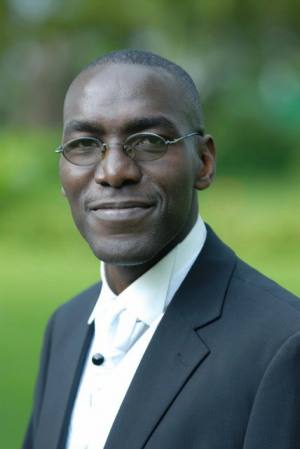
One of the worst and most devastating outcomes of any treatment is death. Although death is inevitable, a lot can be learned from looking at the causes and trends of diseases in different places around the world.
Though when most people die it is obvious, the causes of death are not often well established. This leaves a big gap in the way health policymakers make decisions for resource allocation in the health sector. Much is known about infectious diseases like malaria, HIV-AIDS, and tuberculosis as the leading killers in sub-Saharan Africa. However, little is known about other causes of death.
Doctors from Yale University, USA, and, Makerere University, Uganda, undertook a four-year study to look at the leading causes of admissions and death in medical wards in Mulago National Referral Hospital, the biggest hospital in Uganda. They recruited a total of 50,624 patients admitted to the medical wards between January 2011 and December 2014. They noted that the majority of patients admitted were quite young, with an average age of 38 years, and were more likely to be females.
On further analysis, they found that up to 72% of the patients had a non-communicable disease (NCD) as the main reason for visiting the hospital. NCDs are diseases that are not directly transmissible but largely arise out of people growing older but more importantly from their lifestyle. It is well established that people who smoke, drink excessive amounts of alcohol, or eat unhealthy foods (low in fruits, vegetables but high in fat), are more likely to suffer from these diseases. The same goes for people who are inactive or do little physical exercise. We have been aware that NCDs present a big problem in limited resource settings like Uganda. Patients often present late for medical care, yet the availability of advanced therapy is limited. This prompted doctors to look into this issue.
In this study, doctors noted that although infectious diseases still played a major part in bringing patients to hospitals, there was a general trend of an increase in admission due to diseases like high blood pressure, kidney disease, stroke, and cancer. Out of the 8,637 (17.1%) who died during hospitalization, the leading causes of death were non-tuberculosis pneumonia (28.8%), tuberculosis (26.8%), stroke (26.8%), and cancer (26.1%). Please note that some patients had more than one disease condition. People diagnosed with HIV-AIDS, those above 50 years of age, and those who were male had an increased risk of dying while in hospital.
Our study demonstrated an increasing trend of NCDs as a major cause of admissions over the 4-year period in the midst of an on-going problem of infectious diseases. Healthcare systems in sub-Saharan Africa need to be prepared for the dual burden of disease in order to avoid catastrophic mortalities.
At the individual level, people should not wait until they fall ill to seek medical advice. We recommend getting appropriate checkups for adults. It is recommended that, whenever possible, people should engage in regular physical exercise, which is required at least 4 times a week. They should consume food low in sugar and unsaturated fats. Take less salt in food and avoid the harmful use of alcohol and smoking. Making such practices routine in one’s life will help us to delay or even reverse the NCD epidemic which is now the leading cause of deaths around the world.
Please find more details here
Fundraiser to benefit underprivileged preschool children
Your invited to support our partner Grace’s Promise by attending a fundraiser to benefit underprivileged preschool children living in rural Nakaseke District in Uganda.
To donate online click here to know more about Grace’s Promise click here
The Miss ACCESS Scholarship Pageant
The Miss ACCESS Scholarship Pageant was produced and hosted by Lanial Madden  a Masters of Public Health student at Touro University California for the nursing and midwifery students at ACCESS school of Nursing and Midwifery (ASNM) in Nakaseke, Uganda.
a Masters of Public Health student at Touro University California for the nursing and midwifery students at ACCESS school of Nursing and Midwifery (ASNM) in Nakaseke, Uganda.
These young women are currently students pursuing careers as healthcare professionals. They have been working extremely hard and studying for the Uganda Nurses and Midwives Examinations Board ( UNMEB) exams. Upon completion of their programs they will obtain Certificates in Nursing and/or Certificates in Midwifery.
The purpose of the scholarship pageant was two-fold:
1) to provide financial assistance to aspiring nurses and midwives in the region, and
2) to build up confidence, affirm self-worth, and empower young women.
The Evening of the Miss ACCESS Scholarship Pageant took place on Friday, July 27th, 2018 at 5pm on the campus of ASNM, in Nakaseke, Uganda. Scholarships were awarded at the conclusion of the event and the winners were announced.
Here are some of the photos from the evening of the event
















